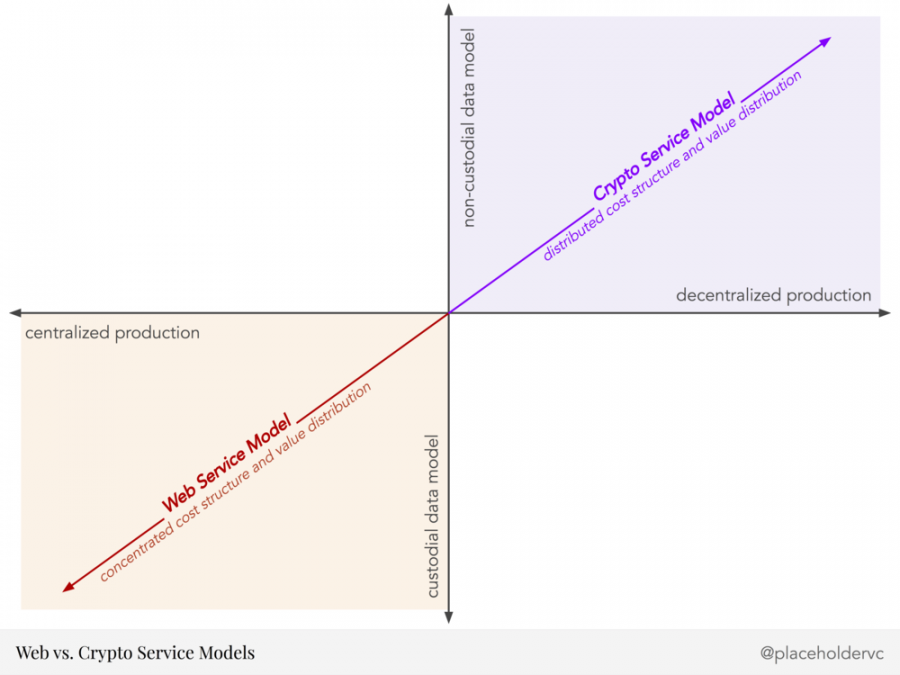Analysis
Decentralized crypto-service networks are more cost-effective & secure than centralized ones, claims Placeholder research

The blockchain revolution starting with Bitcoin had a great impact on the world, not just because it highlighted the importance of a decentralized financial system, but mainly because it highlighted how distributed systems can put power back in the hands of consumers.
A recent study by Placeholder, a New York-based investment firm, compared cost structure and value distribution in traditional centralized web service models to the decentralized crypto service model.

Source: Placeholder
As we can see from the graph, the cost is evenly distributed in a decentralized production model, giving it more distributed value in the market as we tend to allocate value to a product based on its cost. On the contrary, in a web service model or the traditional centralized model, even though the value is distributed, the cost is still concentrated at the top which can prove to be highly risky in the long run with a single point of failure.
The web service model is a combination of centralized production along with a custodial data model where the service provider manages the complete lifecycle of their products and services. The service provider bears all costs of production, but at the same time they also stay in control of all the data contributed, as well as generated by users.
Crypto-service models are exactly the opposite of centralized models as they combine decentralized production with a non-custodial data model. Decentralized production model distributes the cost of production across a larger section on the network by incentivizing independent node operators who validate transactions on the network. This model of production has lesser risks involved as there is no single point of failure.
Data is the game-changer
Data is the most precious commodity in the present day. The importance of custodial data can be understood from the fact that most top billion-dollar firms are technology companies like Google, Facebook, and Amazon. These firms have accumulated tons of data on consumers over the years and their data sets have grown so strong that they can predict user behavior through multiple data points.
The centralized and custodial data models have given these tech firms an unfair advantage as they have been found to indulge in unfair means by breaching consumer rights. This was quite evident in the infamous case of Cambridge Analytica involving Facebook where the firm collected data from Facebook on more than 50 million users, creating more than 50 data points on each individual to predict their behavior.
The expose highlighted the grave concerns associated with these tech firms holding a monopoly over the user’s personal information. The same has been true for other tech giants like Google as well, who are often accused of manipulating their search algorithm for third-parties and not abiding by the regulations put in place.
This is why decentralized systems and non-custodial data accumulation is so significant presently. In a decentralized model, even if the data is saved on a public ledger, it can only be accessed by the true owner and they can decide with whom they want to share their data. This features highlights its growing imporatance in the world today.
Final thoughts
Decentralized production models are not just cost-effective, but much more efficient than centralized ones. They promise greater value to the products and services on offer and provide better security for consumer data. Privacy and data are going to shape the future of industries and tech giants; the more data they accumulate on people, the more powerful and untapped they become. Thus, decentralized production and service models are not just cost-efficient, but also more secure in protecting user data than the centralized models.

